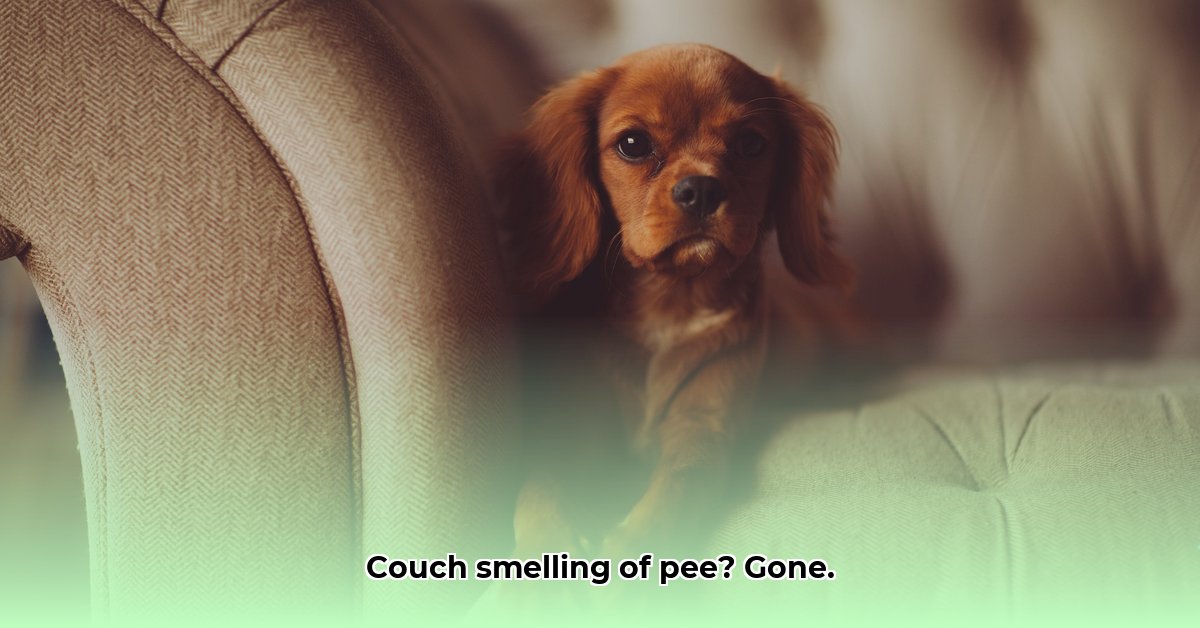Conquer Couch Odors: A Step-by-Step Rescue Plan
Accidents happen. Whether it’s a pet’s little mishap or a potty-training toddler, finding urine on your couch can be distressing. This comprehensive guide provides a practical, step-by-step approach to eliminating that unwelcome odor and restoring your couch to its former glory.
Understanding the Enemy: Why Urine Smells
That unpleasant lingering smell comes from uric acid, a natural component of urine. Uric acid crystals cling to fibers like microscopic burrs, stubbornly holding onto the odor. Bacteria also plays a role, feeding on the urine and releasing even more pungent smells. Effective cleaning requires neutralizing both the uric acid and the bacteria.
First Response: Act Fast and Blot (Don’t Rub!)
Speed is crucial. The sooner you address the accident, the less likely the stain and odor are to set in. Blot (don’t rub!) the area immediately with clean, absorbent cloths or paper towels to soak up as much urine as possible. Rubbing spreads the urine and pushes it deeper into the fibers, exacerbating the problem.
Choosing Your Weapon: Cleaning Solutions
The best cleaning method depends on the stain’s age, your couch’s material, and the source of the urine (pet or human).
Materials Checklist: Gather Your Supplies
Before you begin, assemble the following items:
- Clean, absorbent cloths or paper towels
- Spray bottle
- White vinegar
- Baking soda
- Enzyme cleaner (specifically designed for pet urine)
- Mild dish soap
- Optional: Activated charcoal, hydrogen peroxide, coffee grounds, waterproof couch cover
Step-by-Step Cleaning Instructions
-
Blot: Gently blot the affected area to absorb as much urine as possible.
-
Vinegar Solution: Mix one part white vinegar with four parts water in a spray bottle. Saturate the stained area, blot gently, and repeat as needed. For leather, use a slightly stronger solution (1:2 ratio) with a few drops of mild dish soap. Always test any solution on a hidden area first.
-
Baking Soda Absorption: Sprinkle a generous layer of baking soda over the damp area to absorb lingering odors and moisture. Let it sit for several hours or overnight, then vacuum thoroughly.
-
Enzyme Power (for Pet Urine): If the odor persists, especially with pet urine, use an enzyme cleaner. Follow product instructions carefully, as some require the area to remain moist during treatment.
-
Fabric-Specific Care: Consider your couch’s material. Delicate fabrics require extra caution and testing. Leather should be treated gently, avoiding excessive moisture. Call a professional for valuable or antique furniture.
-
Stubborn Odor Troubleshooting: For lingering odors, try activated charcoal in a bowl or small bags near the affected area for 24-48 hours. Airing out the couch in sunshine can also help.
Prevention: A Stitch in Time Saves Nine
Protecting your couch is the best defense. Consider:
- Waterproof Couch Covers: These are a game-changer, providing a barrier against spills and accidents.
- Pet Training and Management: Consistent potty training, readily available litter boxes, and enzyme sprays can discourage pets from marking territory.
- Child-Proofing Strategies: Gentle reminders, waterproof mattress protectors on the couch during naps, and “no drinks on the couch” rules can minimize accidents.
Troubleshooting: When Odors Persist
- Repeat Cleaning: Sometimes a second or third round of cleaning is necessary, especially for older or deeply set-in stains.
- Deep Cleaning: Steam cleaning can penetrate deep into fibers, but use caution and always test first.
- Professional Help: For stubborn stains, delicate fabrics, or valuable furniture, consult a professional upholstery cleaner.
FAQ: Addressing Common Concerns
Q: Can I use bleach on my couch?
A: Generally, no. Bleach can damage most upholstery fabrics and discolor them. Always test in an inconspicuous area first, but it’s best avoided.
Q: How often should I clean my couch?
A: Regular vacuuming (weekly) helps remove dust and debris. Spot clean as needed and consider a deeper cleaning every few months.
Q: What if the stain is old?
A: Enzyme cleaners are still a good option, but multiple applications may be necessary. Some stains may require professional cleaning.
Q: What’s the difference between pet and human urine stains?
A: Pet urine, particularly from cats, is typically more concentrated and contains different compounds, making it more challenging to remove.
Q: What if I’ve tried everything, and the smell won’t go away?
A: It’s likely time to call a professional upholstery cleaner. They have specialized tools and expertise to handle even the most stubborn odors. Consider inquiring about ozone treatments, which can be particularly effective for removing persistent smells.
By following this guide, you can conquer couch urine odors and reclaim your clean, fresh living room. Share your own tips and experiences in the comments below! We’re all in this together!
- How to Get a Free Mold Inspection (and Avoid the Scams) - April 23, 2025
- How to Flush a Toilet Without Water: A Step-by-Step Guide - April 23, 2025
- The Complete Guide to Safely Disposing of Light Globes - April 23, 2025










